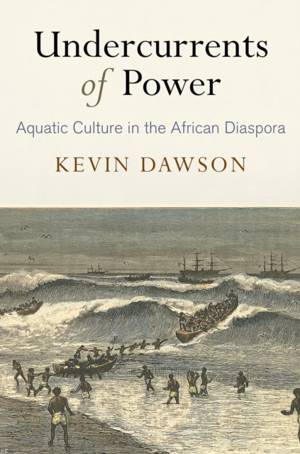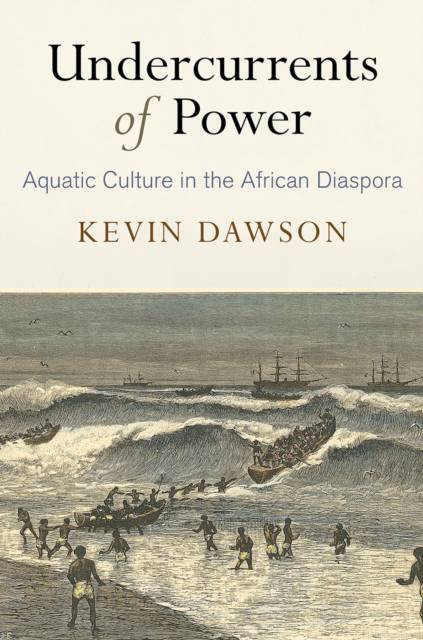
- Afhalen na 1 uur in een winkel met voorraad
- Gratis thuislevering in België vanaf € 30
- Ruim aanbod met 7 miljoen producten
- Afhalen na 1 uur in een winkel met voorraad
- Gratis thuislevering in België vanaf € 30
- Ruim aanbod met 7 miljoen producten
Omschrijving
Long before the rise of New World slavery, West Africans were adept swimmers, divers, canoe makers, and canoeists. They lived along riverbanks, near lakes, or close to the ocean. In those waterways, they became proficient in diverse maritime skills, while incorporating water and aquatics into spiritual understandings of the world. Transported to the Americas, slaves carried with them these West African skills and cultural values. Indeed, according to Kevin Dawson's examination of water culture in the African diaspora, the aquatic abilities of people of African descent often surpassed those of Europeans and their descendants from the age of discovery until well into the nineteenth century.
As Dawson argues, histories of slavery have largely chronicled the fields of the New World, whether tobacco, sugar, indigo, rice, or cotton. However, most plantations were located near waterways to facilitate the transportation of goods to market, and large numbers of agricultural slaves had ready access to water in which to sustain their abilities and interests. Swimming and canoeing provided respite from the monotony of agricultural bondage and brief moments of bodily privacy. In some instances, enslaved laborers exchanged their aquatic expertise for unique privileges, including wages, opportunities to work free of direct white supervision, and even in rare circumstances, freedom.
Dawson builds his analysis around a discussion of African traditions and the ways in which similar traditions--swimming, diving, boat making, even surfing--emerged within African diasporic communities. Undercurrents of Power not only chronicles the experiences of enslaved maritime workers, but also traverses the waters of the Atlantic repeatedly to trace and untangle cultural and social traditions.
Specificaties
Betrokkenen
- Auteur(s):
- Uitgeverij:
Inhoud
- Aantal bladzijden:
- 360
- Taal:
- Engels
- Reeks:
Eigenschappen
- Productcode (EAN):
- 9780812249897
- Verschijningsdatum:
- 20/03/2018
- Uitvoering:
- Hardcover
- Formaat:
- Genaaid
- Afmetingen:
- 155 mm x 231 mm
- Gewicht:
- 703 g

Alleen bij Standaard Boekhandel
Beoordelingen
We publiceren alleen reviews die voldoen aan de voorwaarden voor reviews. Bekijk onze voorwaarden voor reviews.









